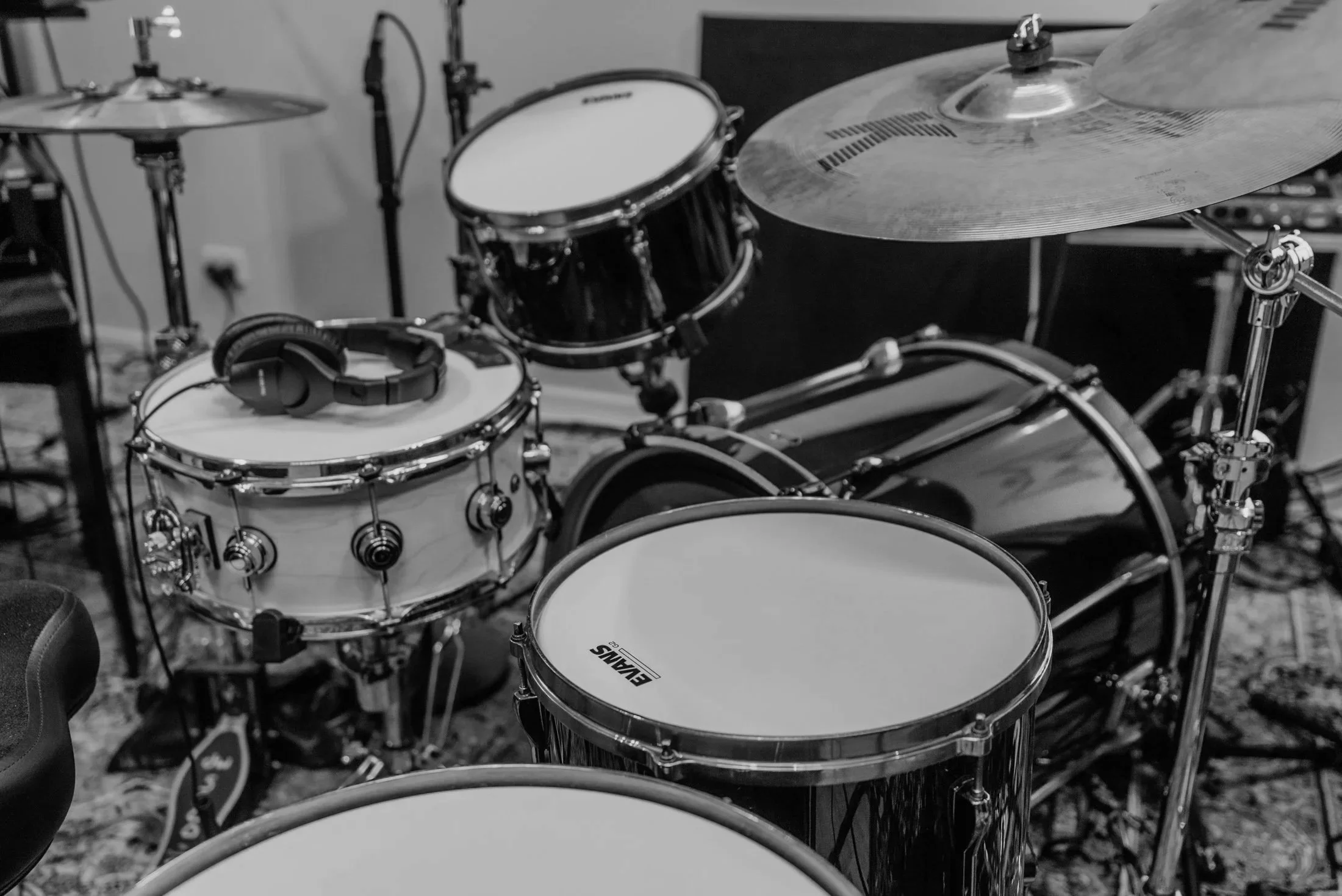If you want to learn how to play the drums you’re going to need one fairly essential big purchase… and that’s a drum kit. Buying a drum kit is a big decision. Drum kits are unlike any other music instrument in that they’re not standard in any way. Every component of a drum kit can be customised. Drums come in all shapes and sizes. Cymbals come in all shapes and sizes. There are so many options for drum kits that early on it can be a bit daunting and overwhelming figuring out what you need. However, the sooner you can take the plunge into having one at home the better. It’s really difficult to inspire interest if you cannot practice properly and drums are really meant to be fun! So for that reason I think getting a kit straight up is where it’s at. Here I’m going lend my thoughts on what is best and try and help you see through fog a bit.
Basically, the two big worlds of kit you can get are are Electric and Acoustic; both with their advantages and disadvantages but the feel is what is impacted the most.
Long story short:
- You are better off having an acoustic kit but then there is noise and space to consider.
- You’ll have to decide what you’d be able to realistically have in your house with neighbours in mind.
- Electric kit’s are 100% great but you may have to spend a little more initially as you can’t upgrade them gradually.
“Toy” Drum kits
Toy drum kits are generally a bad idea and can actually put the child off playing the instrument. The cheap kids’ drum kits you get from toy shops or Amazon are far removed from the real thing and rarely survive a year before being demoted to landfill.
Acoustic Drum Kits
In my opinion, acoustic drums are the best choice straight out the gate… if you can handle the size and noise that comes with them. Realistically if you are ever going to join and band or play on stage you are going to be playing on an acoustic kit so you are best off learning on one as well. I particularly love how you can gradually upgrade acoustic kits over time (adding new cymbals, pedals, etc as you go) and entry level acoustic models are generally cheaper than their equally matched electric counterparts. Acoustic kits are also typically more adjustable and will last longer than electric ones although they are more expensive to maintain. A few options to look into if noise needs to be mitigated are rubber pads to mute the drums and cymbals or even silent heads.
Quality brands I trust at entry level prices:
PDP, Gretsch, Yamaha, Tama, Mapex and Pearl
Electric Drum Kits
Whilst I think acoustic kits are the way to go personally, electric kits are still fantastic! The technology for these kits has come a long way in the last few years and they sound and feel pretty top notch now. The most important thing with an electronic set up is having a realistic and sturdy feel with the Snare, Hi-hats and Bass drum. These 3 drums are used the most and are where technique development is generally focused. On a cheaper set, the Snare pad is often not sensitive enough to respond to very soft strokes and techniques so it’s good to avoid a model like this if possible. Another important thing to look out for is having an actual Bass drum pedal and not a trigger/push button for the Bass drum. This may mean spending a little bit more at the beginning but there is almost no maintenance costs with these kits and they will last a long time.
The ONLY brands to buy from:
Yamaha and Roland
Second Hand
Drum Kits
I’m a MASSIVE fan of second hand kits, especially acoustic ones. You can grab a solid deal for around $600 usually for a beginner acoustic kit that will last for a long time and have solid resale potential when you go to upgrade. Electric kit’s are a bit harder to pick second hand (sometimes it's harder to spot electronic flaws than physical ones). I’m happy to appraise any kits you find online/gumtree/marketplace if you’d like as well.




